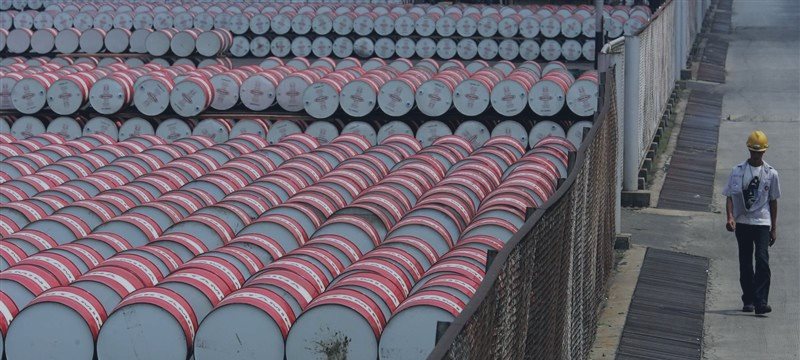
OPEC: Oil prices will hardly rise above $100 in the next decade - Analysis
According to a draft of the recent strategy report by the Organization of the Petroleum Exporting Countries, the cartel does not see oil prices consistently trading at $100 barrel again in the next ten years. A pessimistic evaluation has the group considering the return of production limits to influence the market, the Wall Street Journal reports.
The report estimates that oil prices will be about $76 a barrel in 2025 in its most optimistic scenario, a reflection of OPEC worries that U.S. rivals will be able to cope with low prices and keep pumping out supplies. It also contemplates situations where crude oil costs below $40 a barrel in 2025.
“$100 is not in any of the scenarios,” said a delegate at the OPEC strategy presentation last week in Vienna.
A surge in American supplies,
thanks to hydraulic fracturing of shale formations deep underground, left OPEC grappling with how to best respond to a dramatic price plunge. The cartel usually reduces its own production to cut supplies to raise prices in times of market storminess, but last year the group decided that wouldn’t work, with some members, notable Saudi Arabia, flooding the market with more crude in hopes of keeping customers.
In turn, OPEC officials have said the low-price environment could push out some expensive-to-produce oil, such as American frackers, whose costs are high.
Since that time, the market has considerably rebounded with Brent crude, the global benchmark for pricing, trading at about $66 on Monday morning in London.
In OPEC's report, the
oil price could go higher or lower between now and 2025, and the report is a draft presented at an OPEC staff meeting
in Vienna last week.
However, it could change ahead of the group’s highly anticipated gathering of ministers in June or before they are asked to approve it later this year.
The draft estimate recommends that OPEC come back to a production quota system which was abandoned in 2011 after fights over how much each country would get to produce. OPEC members have been reluctant to agree to limits because it restricts their ability to attract new business and most ignored their quota.
The production quotas model under consideration would allow the poorest members of OPEC to produce more. Currently, Saudi Arabia, Iraq and the likes are producing record levels of crude hoping to keep or gain market share. But this kind of a policy could make such members as Algeria and Venezuela more agreeable, though the report does not indicate any particular state.
Under the recommendations, the quotas could kick in if OPEC’s share of the global market fell below its current level of 32%, officials said. The group once produced more than half the world’s oil.


